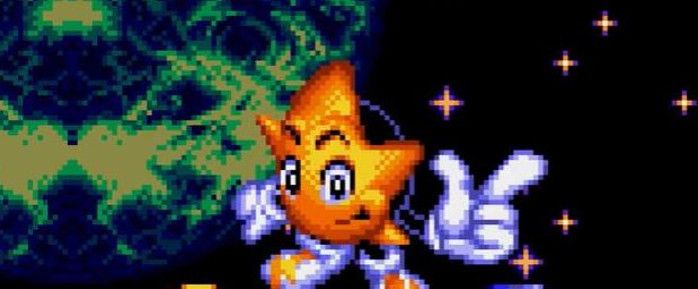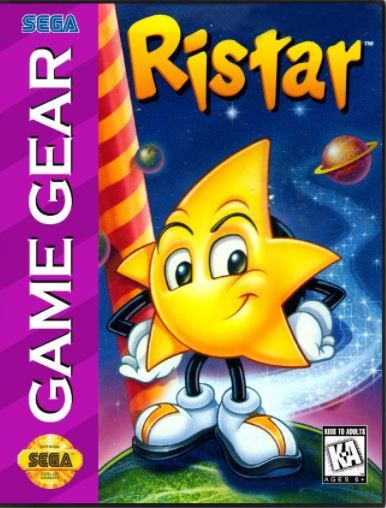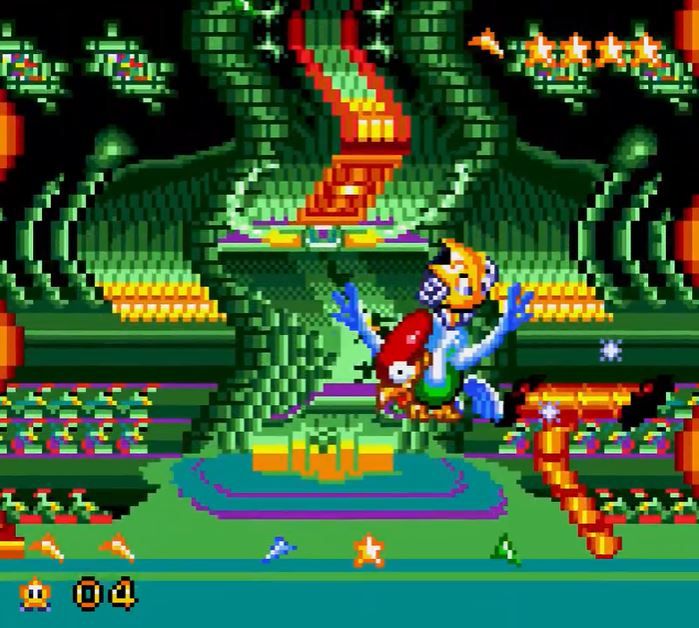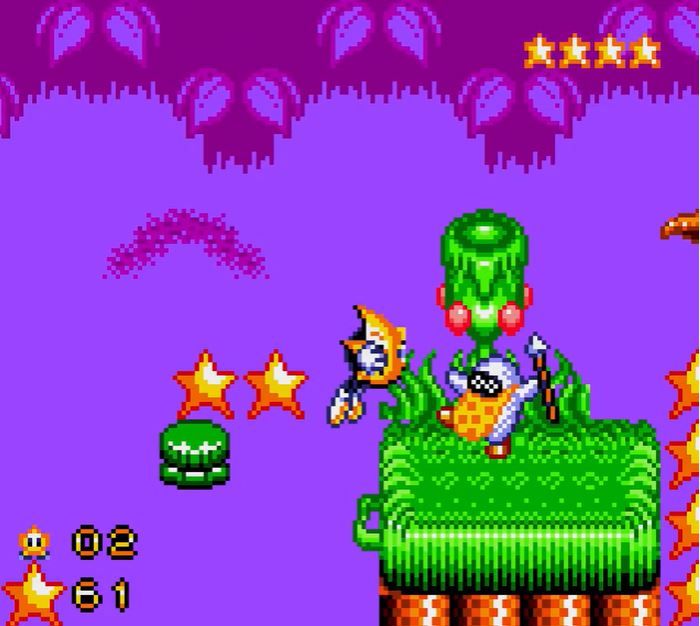Handheld gaming is more than a compromise of power and portability. Whether it’s the ability to play anywhere, multitask or hold an entire console in your hands, it’s a special experience consoles have never replicated. In a world where high resolutions and teraflops reign supreme, we take a look at a portable relic every month and reflect on what makes it memorable. Be warned, spoilers may occasionally populate these articles.
Getting released late in a console's lifecycle is not without its perils. Even though late-cycle games have the advantage of the developers having more experience with designing games for the hardware, they're often overshadowed by the newer and shinier games arriving on the console's successor. Ristar is one such game that was a good game of the 16-bit era but time was not its ally. Released for the Genesis in 1995 when attention was already being diverted to the PlayStation and Saturn. Ristar also was given a altered port to Game Gear, which at this point it was clear that despite the TV adapter and color screen, Nintendo's Game Boy was going to be the only relevant handheld left standing for the next few years. Despite the odds being stacked against it, Ristar is in fact one of the games that supports the argument that Game Gear did actually have some good games.
Ristar takes place in the Valdi System, a solar system consisting of seven planets. Kaiser Greedy, a space pirate who was named in the style of Dr. Evil and Darth Sidious, has used his mind control powers to enslave the leaders of the planets. The inhabitant of Planet Flora pray for a hero to save them which are answered by the Star Goddess Oruto. She sends one of her star children, Ristar, to the planet to aid her followers and he must defeat each of the brainwashed leaders to free them from Greedy's hypnosis before going after the Kaiser.
During the 16-bit era it was the general consensus that any game that existed on both a home console and a handheld console, that the handheld version was an inferior port. Due to hardware limitations this was almost always true, and Ristar was no different. The general mechanics and overall essence of Ristar was preserved when it made the transition to the small screen, but concessions were made. Audio and graphic quality is typically the first concession, but there were others with this transition. Levels were redesigned and cut, and part of the pruning including removing mid level bosses. The Game Gear version didn't make many concessions of the platforming or stretchy arm mechanics, and while it is a fun Game Gear title, its big brother on Genesis is considered the superior Ristar.
Ristar is a 2D platformer which is probably the format for the majority of action games from its era. Ristar was unique among platformers in that his stretchy arms were a major part of his conveyance. This was a gimmick to set Ristar apart from other games, but it added to a lot of fun elements to the game. Ristar could stretch his arms into eight different directions and use the poles found in levels to swing across gaps. Ristar could even grab enemies midair and swing from them. Far from a pacifist, Ristar can also use his arms for more aggressive tactics. He can grab onto the enemies and pull himself toward them for a pointy star headbutt. Defeating his enemies can lead to additional actions for him. He can take their hat and throw it like a weapon or take a spear and hurl it into a wall to form a makeshift step.
Ristar on Game Gear is one of the stronger games available for the platform. Fighting from planet to planet created interesting environments to explore and the stretchy arm mechanic led to creative gameplay in a common format. The developers changed the level designs and introduced environments that weren't in the Genesis version to help sell the idea that this was a different incarnation of Ristar and not simply a scaled-down version for the weaker hardware. It might not have the name recognition of some of the major '90s platformer titles, but fans of those owe it to themselves to check out Ristar.
Despite being one of the more desirable titles for Game Gear, Ristar was a casualty of its release date and platform. Less attention was focused on the 16-bit era games in favor of the 32-bit CD-ROM consoles, plus we all know how the Game Boy vs. Game Gear feud ended. The Genesis version of Ristar has been included in a few of the Sega Genesis game collections released for more modern consoles, but sadly the Game Gear version hasn't enjoyed such preservation. But regardless of that, it's a gem amongst the Game Gear library and well worth acquiring for any retro collector.
Get more Pocket Power. Click here to view every Pocket Power so far and prepare for a pocket-sized stroll down memory lane.




